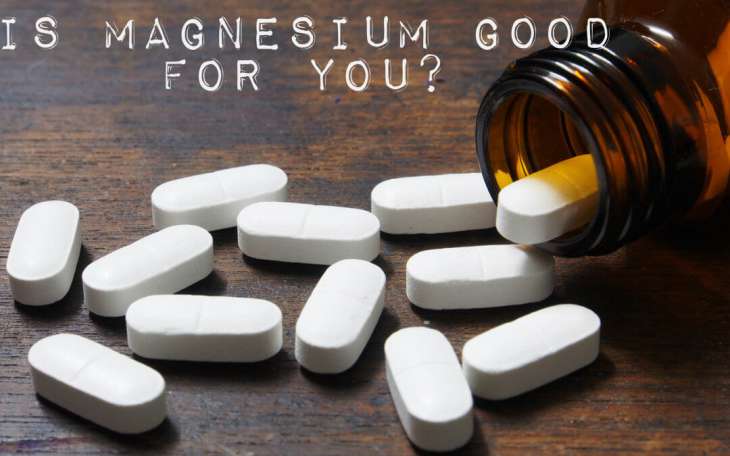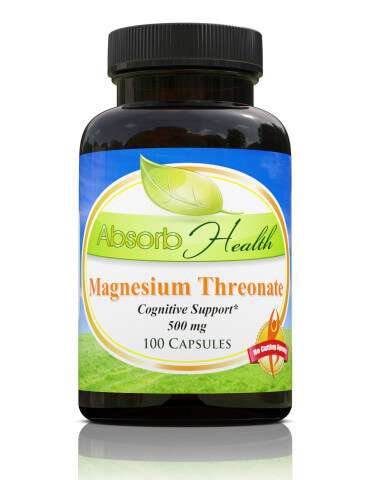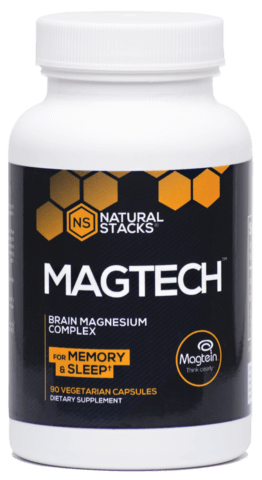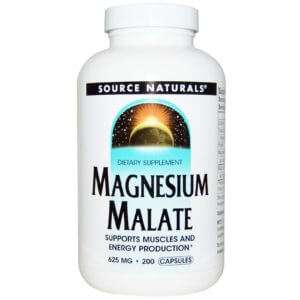Is Magnesium Good for You? It Depends on Your Health…
Magnesium is a naturally occurring nutrient affecting more 300 biochemical reactions in the body. It is essential for a healthy heart, proper development of teeth and bones, energy production and other necessary functions.
Eating nuts, green leafy vegetables, and other magnesium-rich foods will help you maintain the proper level of this essential mineral. If it’s hard for you to eat a balanced diet, taking a magnesium supplement will help boost your magnesium level and live a healthier life.
Is Magnesium Good For You to Take?
Here’s a list of seven commonly used types of magnesium, and some of them are more effective for certain health problems than others. You’ve probably used over-the-counter products with magnesium to relieve heartburn or constipation, but magnesium can improve your skin, heart, teeth muscles and other organs when taken daily as a supplement.
Magnesium Orotate
- Easily absorbed by the body, magnesium orotate consists of magnesium bound to orotic acid.
Magnesium Citrate
- Used in many popular laxatives, it promotes bowel movements.
Magnesium Glycinate
Highly absorbable, it is excellent for correcting a long-term magnesium deficiency and won’t cause diarrhea.
Magnesium Oxide
- Like magnesium citrate, magnesium oxide in used to prevent constipation. It may also be used to control acid reflux (GERD).
Magnesium Amino Acid Chelate
- This is a chelated form of magnesium, which includes a magnesium oxide ion linked with an amino acid mixture. The amino acid may be a glycine, arginine, lactate or aspartate.
Magnesium Taurate
- Easily absorbed Magnesium Taurate prevents arrhythmia and treats damage from heart attacks. It has no laxative qualities.
Magnesium Lactate
- Used to treat poor digestion. People with kidney stones or kidney disease shouldn’t use this type of magnesium.
Is Magnesium Good to Take Everyday?
About 80% of people in the U.S. suffer from magnesium deficiency. This is mostly due to an inadequate diet. Sources of magnesium include green leafy vegetables, nuts, seeds, beans and whole grains.
If you have any of the following symptoms, as provided by the University of Maryland Medical Center, you may have a magnesium deficiency:
- Insomnia
- Seizures
- Irritability
- Restless Leg Syndrome (RLS)
- Confusion
- Low blood pressure
- Muscle Spasms
- Nausea and Vomiting
- Agitation and Anxiety
- Abnormal Heart Rhythms
Men over 31 should get 420 mg of magnesium daily, women 31 and over 320 mg. Infants from one to three years should get 80 mg of magnesium daily, ages four to eight 130 mg, and nine to 13 240 mg. Feed your kids a diet naturally high in magnesium to avoid a deficiency. Children who don’t get enough magnesium may develop ADHD. If your child develops hyperactivity or other ADHD-related problems, consider a magnesium supplement.
Is Magnesium Good For Your High Blood Pressure?
A study in the journal Hypertension showed subjects who took magnesium supplements for three months had lower blood pressure than individuals given a placebo. Magnesium prevents constriction of blood vessels, allowing blood to flow freely.
High blood pressure is one of the first signs of heart disease. If you have high blood pressure, reduce the sugar and salt in your diet with magnesium-rich foods, exercise more and reduce stress through meditation. Practicing these stress-lowering measures can significantly lower blood pressure in most people.
Is Magnesium Good for Heart Arrhythmia?
Magnesium helps your heart keep the beat because it transports calcium and other electrolytes into your cells. Electrolytes orchestrate the nerve signals and muscle contractions needed for a regular heartbeat. Low magnesium in the blood contributes to atrial fibrillation, an electrical disorder in the upper heart chambers.
Doctors administer magnesium by IV in the hospital to prevent irregular heartbeat (arrhythmia). A magnesium supplement is prescribed for some patients to help them maintain a steady heartbeat after initial treatment.
Eating more magnesium- rich foods may not be enough to prevent arrhythmia in certain people. If you have Type-2 diabetes, gastrointestinal diseases, or are over 50, your ability to absorb magnesium from food is compromised. Look into taking a magnesium supplement to reduce the risk of an irregular heartbeat.
Is Magnesium Good for Heart Disease?
Doctors use magnesium to treat Congestive Heart Failure (CHF), and one study suggested magnesium should be administered after a heart attack to prevent heart muscle damage. This is no surprise since the highest level of magnesium in the body is in the heart’s left ventricle.
Magnesium in the body is depleted during times of high stress. Stress leads to high blood pressure and eventually heart problems. Managing stress – and being tested for high blood pressure, heart problems and magnesium deficiency during stressful times can improve your chances of avoiding heart disease
Is Magnesium Good for Your Heart?
Magnesium deficiency contributes to several cardiovascular risk factors, including high cholesterol, high blood pressure, and hardening of the arteries. Studies show people with a lower intake of magnesium are more likely to develop heart disease.
Magnesium offers the following heart health benefits, according to Dr. Mercola:
- Dissolves blood clots
- Dilates blood vessels
- Prevents spasms in blood vessel walls and heart muscles
- Lessens the site of injury and prevents arrhythmia
- Stops free radicals from forming at the site of injury
- Counteracts the effects of calcium, which increases heart muscle spasms
Is Magnesium Good for Your Skin?
Looking for a natural, inexpensive way to keep your skin clear and youthful-looking? Take a magnesium supplement instead of spending money on creams or procedures after-the-fact. Magnesium facilitates the growth of healthy skin tissues and prevents attacks from free radicals, molecules that attack healthy cells and cause wrinkles.
If you experience acne breakouts, magnesium reduces the inflammation that causes pimples. Excess histamine production in your body causes the red blotchy skin of eczema and psoriasis. Proper magnesium intake reduces histamines, making skin clearer.
Is Magnesium Good to Take Before Bed?
Magnesium’s a muscle relaxant and has natural anti-anxiety properties. If you have trouble getting to sleep because you can’t stop worrying about the next day’s activities or other problems, take a magnesium supplement before you go to bed to help calm your nerves and ensure a more restful sleep.
Do debilitating leg cramps (or Restless Leg Syndrome) wake you up in the middle of the night? Diuretics and some high blood pressure medications deplete the body of magnesium to cause leg cramps. Take a magnesium supplement to treat leg cramps during the day and avoid surprises at night.
Is Magnesium Good to Take While Pregnant?
Magnesium relieves the leg muscle cramps women experience during pregnancy. The additional weight and pressure on nerves and blood vessels to your legs by the developing baby may cause cramps. Magnesium relaxes muscles, especially during the third trimester.
Calcium and magnesium work in tandem to keep muscles strong during pregnancy. Calcium helps muscles contract, and magnesium relaxes them. Getting enough magnesium during pregnancy may stop premature contractions, and magnesium and calcium help your baby develop strong bones and teeth.
In this video, Rochelle McKay-Masteron, ND, talks about the benefits of magnesium for mother and infant and the success her patients have experienced with magnesium supplements.
Easing Pregnancy with Magnesium (Video)
If you have one or more signs of magnesium deficiency, including sleeplessness, high blood pressure, bad skin or heart arrhythmia, eat a balanced diet full of fruits and vegetables, exercise more and take a magnesium supplement to improve your health.
Here are a few highly recommended magnesium supplements you can try:
Have you taken a magnesium supplement to eliminate a magnesium deficiency or other health problem? If so, let us know in the comments below. Questions about magnesium supplements are welcome, too.
[catlist excludeposts=this template="div" conditional_title_tag="h6" conditional_title="Other Magnesium resources" id="195" tags="using"]




